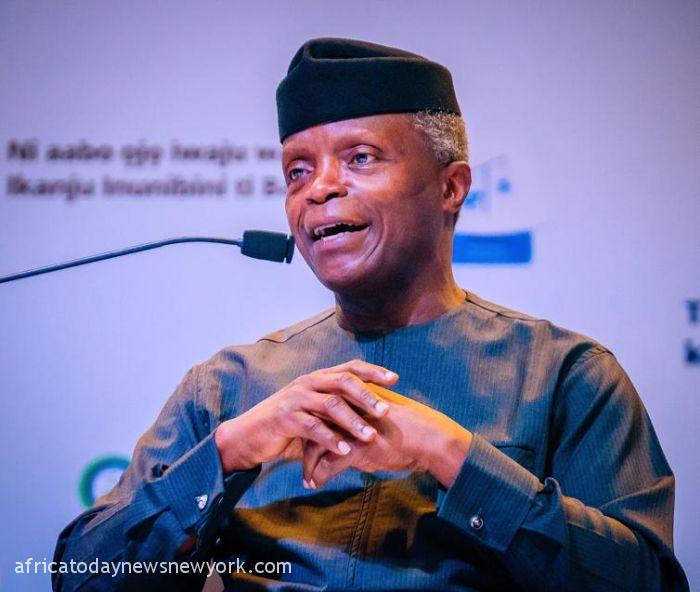The Vice President of Nigeria, Prof. Yemi Osinbajo yesterday submitted that Nigeria will be needing to spend at least $410bn to deliver its energy transition plan by 2060.
Osinbajo made this known while speaking at the global virtual inauguration of Nigeria’s Energy Transition Plan on Wednesday.
His thoughts were conveyed in a statement by his spokesman, Laolu Akande which was obtained by Africa Today News, New York.
The plan is a roadmap to control the dual crises of energy poverty and climate change.
Osinbajo pointed out the significant scale of resources required to attain both development and climate ambitions.
Read Also: 3 Permanent Secretaries Sworn In By Buhari, Osinbajo Joins FEC
According to him, ‘For Africa, the problem of energy poverty is as important as our climate ambitions.
‘Nigeria would need to spend 410 billion dollars above business-as-usual spending to deliver our transition plan by 2060, which translates to about 10 billion dollars per year.
‘The average 3 billion dollars per year investments in renewable energy recorded for the whole of Africa between 2000 and 2020 will certainly not suffice.’
In a related development, Africa Today News, New York had earlier reported that to achieve industrialisation via economic diversification, the National Agency for Science and Engineering Infrastructure, NASENI had last week announced that it has entered an agreement with China Great Wall Industry Corporation to develop a transformer manufacturing facility in Nigeria.
According to Mr. Olusegun Ayeoyenikan, NASENI’s Deputy Director, Information, he noted that the commissioning and foundation laying observance will be conducted by the two corporations, come September.
As contained in the statement, Prof. Mohammed Haruna, the Executive Vice Chairman/Chief Executive, NASENI, Noted that the coalition was made official and signed in 2013, this was between the Federal Government and the People’s Republic of China, however, operations couldn’t commence owing to technicalities involved.

